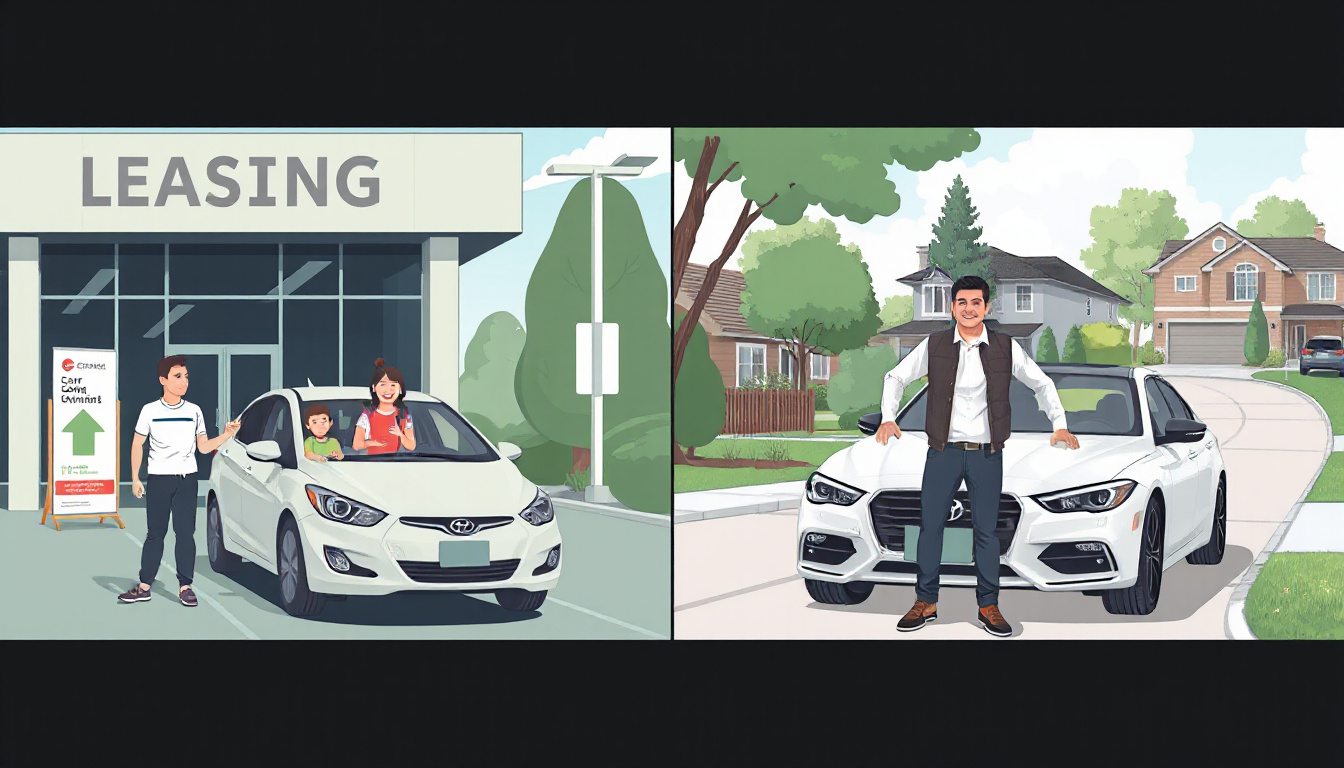When it comes to acquiring a new vehicle, Canadians often find themselves facing a pivotal decision: should I lease or buy a car? Each option comes with its unique benefits and drawbacks, making it essential to carefully assess your individual circumstances and financial goals. In this guide, we will explore the fundamental differences between leasing and buying a car, highlighting the pros and cons of each to help you make an informed choice that aligns with your needs.

Key Takeaways
- Leasing often results in lower monthly payments compared to buying.
- Buying a car allows for ownership and the potential for resale value.
- Leasing typically comes with mileage restrictions, while buying does not.
- Purchasing a vehicle may have higher upfront costs but promotes long-term value.
- Understanding personal financial situations is crucial in deciding whether to lease or buy.
Understanding the Basics of Car Leasing and Buying
When considering the question, ‘Should I lease or buy a car?’, it’s essential to weigh the pros and cons of each option. Leasing typically requires a lower upfront cost and monthly payments, making it appealing for those who prefer driving a new vehicle every few years without the long-term commitment. On the other hand, buying a car means higher initial costs, but it gives you ownership and the freedom to drive the vehicle as you wish without mileage restrictions. Additionally, while leased vehicles must be returned after the contract ends, a purchased car can be kept for as long as you maintain it. Understanding these factors can empower you to make an informed decision that aligns with your financial goals and lifestyle needs.
Pros and Cons of Leasing a Car
When considering whether to lease or buy a car, it’s crucial to weigh the pros and cons of each option carefully. Leasing a car often comes with lower monthly payments, providing drivers with access to newer models and the latest technology without the hefty price tag associated with purchasing. Additionally, lease agreements typically cover the vehicle’s warranty period, which can save money on repairs. However, leasing also has its downsides: you must adhere to mileage limits, and at the end of the lease term, you won’t own the vehicle outright. On the other hand, buying a car allows for unlimited mileage and the freedom to modify the vehicle as you wish, but it often requires a larger financial commitment and higher monthly payments. Ultimately, should I lease or buy a car? depends on your financial situation, driving habits, and personal preferences.
‘The best way to predict your future is to create it.’ – Peter Drucker

Pros and Cons of Buying a Car
When it comes to the age-old question, ‘Should I lease or buy a car?’, it’s essential to weigh the pros and cons of each option to make a well-informed decision. Buying a car means you own the vehicle outright once it’s paid off, providing you with long-term financial benefits and the freedom to customize it as you wish. Furthermore, no mileage restrictions apply, which is a significant advantage if you plan to use your car extensively. However, the downside can include higher monthly payments and substantial depreciation as soon as you drive off the lot. On the other hand, leasing a car usually offers lower monthly payments and the allure of driving a new vehicle every few years, but it comes with mileage limits and the fact that you don’t own the car at the end of the lease period. Ultimately, whether to lease or buy hinges on your financial situation, driving habits, and personal preferences.
